Relieving professionals in their daily work processes
With cost pressure increasing, so is the need for operational effectiveness, efficiency and productivity. Enterprises struggle to deal with automate business processes and tasks that will not create a benefit for the business. Additionally, finding the right, skilled professionals is one of the biggest challenges companies face today. However, against the backdrop of increasing cost pressure and operational efficiency, companies are forced to leverage the potential of their experts to the fullest. A highly skilled professional dealing with repetitive manual tasks is not just a waste of talent, it is a waste of time and money. Robotic Process Automation (RPA) can take over many of these tasks. Konica Minolta helps its customers identify the potential benefits of RPA and leverage them accordingly to drive their business.
More often than not, highly skilled professionals need to perform very repetitive arduous tasks, taking up a large part of their valuable time. This can also have negative effects on employee motivation.
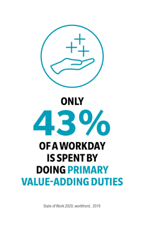
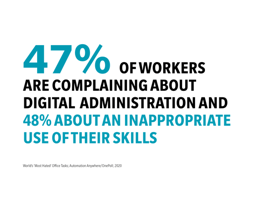
“A highly skilled professional dealing with repetitive manual tasks is not just a waste of talent, it is a waste of time and money.”
How robotic process automation helps
Without no doubt, repetitive tasks have to be done by someone. Here, RPA technology can take over many of these tasks. RPA can record what a user is doing and mimic this for following tasks. In this way, a robot is able to deliver excellent results with process automation even faster than before on repetitive and non-value-adding tasks while avoiding errors. Essentially, RPA is a smart software-bot that acts according to a defined set of digital workforce instructions.
RPA is applicable in a variety of organisational forms and fields, such as the public sector, transportation, finance, telecommunications and insurance. RPA implementation is particularly useful wherever large amounts of data have to be processed in an analogue fashion.
Example insurance:
With insurers, for example, 70 to 80 percent of the tasks required to process insurance claims are repetitive and do not require any human expertise. These include checks as to whether the claim is legitimate with regard to the policy or whether the person submitting the claim is already in the system. RPA is able to take over these automate tasks with an automation platform, meaning that ‘digital’ employees can perform processes like monitoring applications, downloading data, creating reports and issuing invoices. Insurance experts can thereby process claims faster and more precisely, as they only need to focus on the 20 to 30 percent of claims where their expertise is really needed.
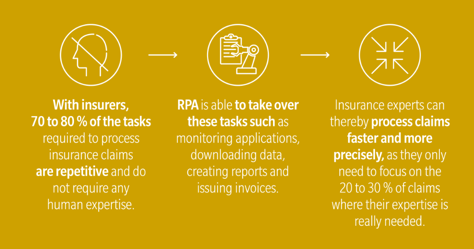
Konica Minolta helps you take advantage of RPA deployment for your business. We enable your employees to focus more on creativity and process optimisation.
Benefits of Robotic Process Automation
Automation technology is evolving in such a way that its use and its benefits for companies are increasing. Robotic Process Automation, as a subset of intelligent automation, can therefore be a valuable tool for companies.
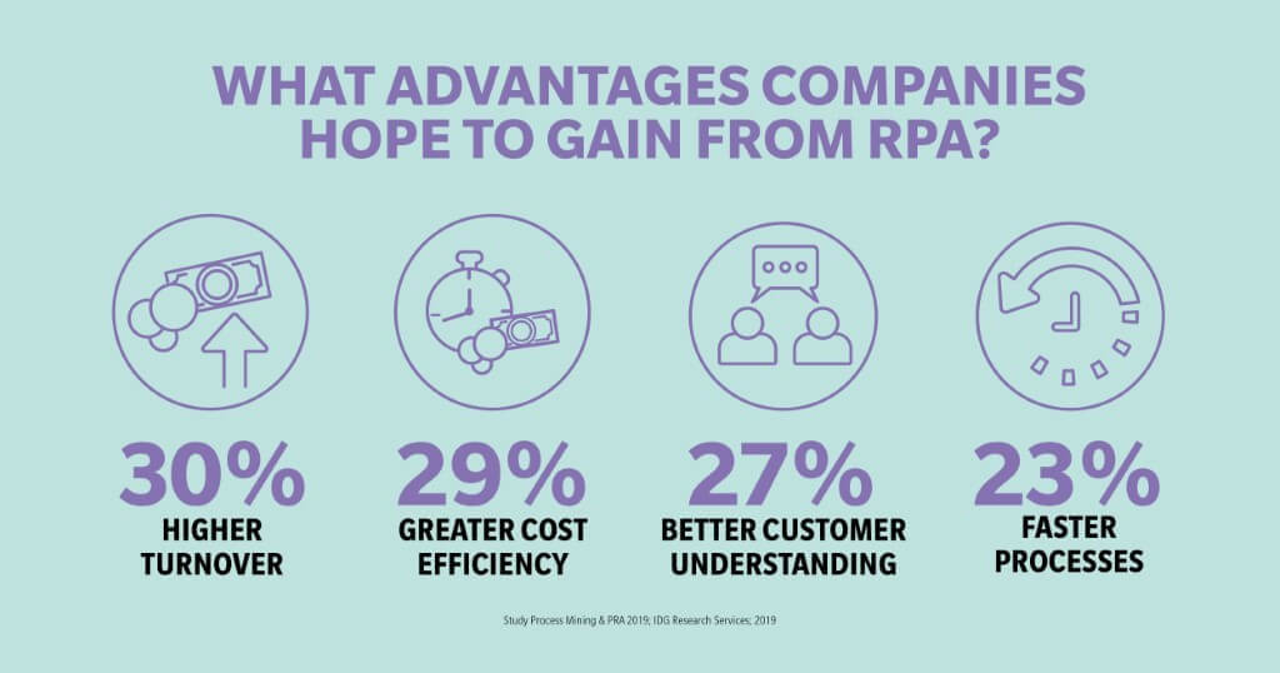
Our RPA solutions offer a great range of benefits

Improvements in customer experience through fewer errors and shorter response times

Unlocking workforce potential through relieving employees

Boosting productivity through less wasted organisation time

Increased agility through very rapid deployment of new services
Our approach to implementing robotic process automation
We work with several leading independent software vendors such as Kofax, ABBYY, Hyland and M-Files. This allows us to offer you exactly the right-sized RPA solutions for all your needs. This can include various tasks such as data capture and integration, data search and analysis, conversion and classification, storage and archive retrieval, workflow, publishing and data migration etc.
- The crucial first step is a thorough analysis – to understand your exact challenges and needs. For this, Konica Minolta uses dedicated process discovery technology to map pain points and business processes.
- Afterwards, our experts find out what it is that you aim to achieve. This leads to a recommendation report for a delivery roadmap and an execution plan.
- Then, we digitise your paper-based or analogue information. This digitisation creates the basis needed for the later intelligent process automation of the information flow.
- The last phase is the intelligent automation of information. Here, intelligent software robots are deployed to use human-like intelligence to perform more complex, yet repetitive tasks.
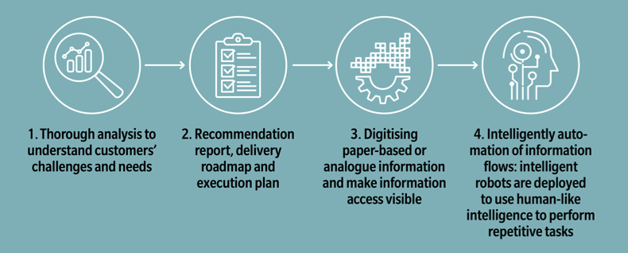
Robotic Process Automation: Workers' little helpers
54 % of companies find it very challenging to attract and retain highly skilled talent. Despite this dramatic shortage more often than not, highly skilled professionals need to perform very repetitive arduous tasks, taking up a large part of their valuable time. Only 43 % of a workday is spent by doing primary value-adding duties. Thus, workers are complaining about digital administration (47%) and an inappropriate use of their skills (48%). Here, Robotic Process Automation (RPA) can help. It can record what a user is doing and mimic this for following tasks so that repetitive tasks can be done by RPA.
Further reading




